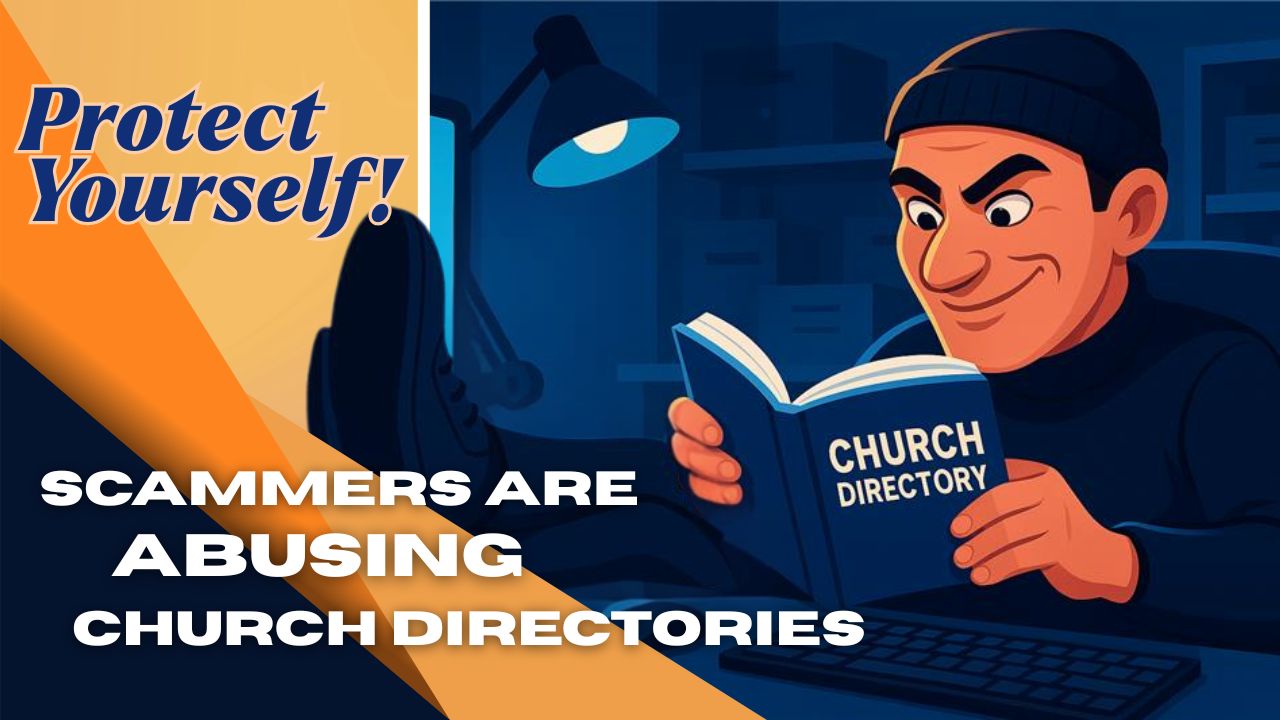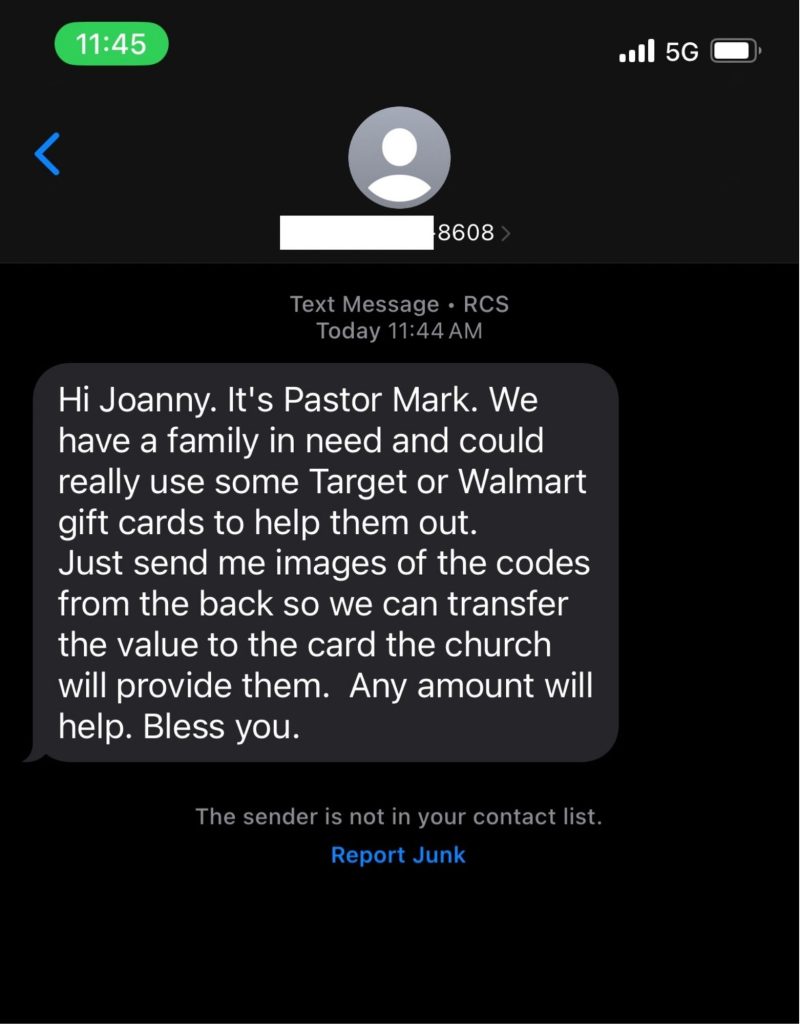Scammers Are Abusing Church Directories – Here’s How to Protect Yourself

Nothing is out of bounds for scammers, and now they’re targeting churches and the people in them. One way they do this is by using church directories. These directories, meant to help members stay connected, can unfortunately become a gold mine for scammers looking to take advantage of kind, trusting people.
If your church has a directory that includes names, phone numbers, email addresses or even home addresses, there’s a real risk that someone could use that information for a scam.
The most common trick? Scammers pretend to be a pastor or another trusted church leader. They’ll send you a text or email that sounds something like this:

This message can look real. It might even come from what seems like your pastor’s phone number or email. But it’s not. It’s a scam.
Once you buy those gift cards and send the codes, the scammer takes the money, and it’s almost impossible to get it back.
These scams work because they’re personal. The scammer may know your name, your pastor’s name and even other people in your church. That’s all thanks to the church directory.
Churches are built on trust and generosity. Scammers know this, and they use it against you.
Here are some warning signs:
- A sudden request for gift cards, especially by text or email
- Messages that say it’s urgent but don’t give many details
- Strange grammar, typos or vague instructions
- Requests that ask you to keep it a secret
- A message that feels “off” or unusual for the person sending it
If something doesn’t feel right, trust your gut.
How to Protect Yourself
- Always double-check. If you get a strange message, call the person directly, don’t just reply to the message.
- Be skeptical of gift card requests. No real pastor or church leader should ask for gift cards by text or email.
- Keep your information private. Don’t share your phone number or address publicly unless you’re sure it’s safe.
- Ask your church about directory privacy. Make sure directories are only shared with members and not posted online or in public areas.
Bottom line: If someone is asking you for gift cards, even if it seems like your pastor, stop and verify. A few seconds could save you hundreds of dollars.
Share:
Disclosures
The material on this site was created for educational purposes. It is not intended to be and should not be treated as legal, tax, investment, accounting, or other professional advice.
Securities and Insurance Products:
NOT A DEPOSIT | NOT FDIC INSURED | NOT BANK GUARANTEED | NOT INSURED BY ANY FEDERAL GOVERNMENT AGENCY | MAY LOSE VALUE
